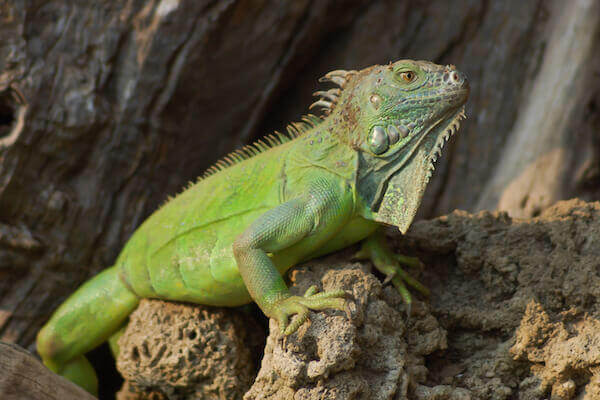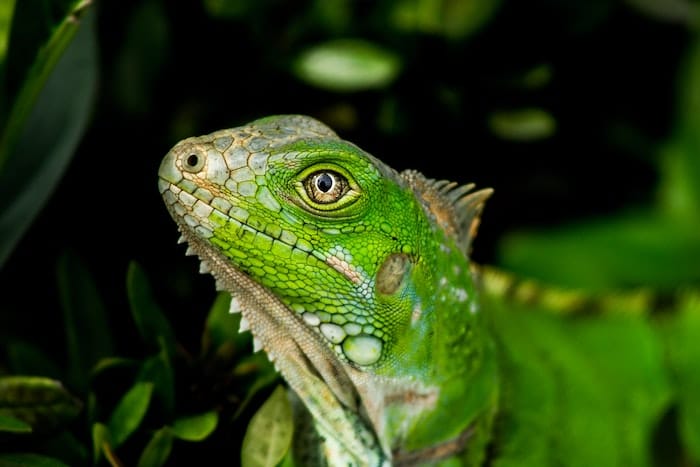Are you one of the many people obsessed with exotic pets? Have you always wanted to own an exotic pet and a baby iguana is the one you’ve always wanted? Well, you’ve come to the right place.
Here, we’re going to tell you everything you need to know about caring for a baby iguana as a first-time iguana hobbyist.

Let’s get started!
Creating the Ideal Habitat
Your baby iguana’s habitat, also known as a terrarium, should mimic their natural environment. This means offering them a warm, humid, and spacious enclosure.
Ensure that the terrarium is large enough for your iguana to grow into, with proper lighting, heating, and humidity control. Provide plenty of branches for climbing and a safe place to bask.
Temperature and Lighting
Iguanas are cold-blooded creatures, which means they rely on their environment to regulate their body temperature. Maintaining the right temperature is crucial.
Use a basking lamp to create a warm spot and a cooler area for your iguana to retreat to. Ultraviolet (UVB) lighting is essential to help them synthesize Vitamin D and absorb calcium, which is vital for their health.
Feeding Your Baby Iguana
These herbivores primarily eat a diet of leafy greens and vegetables. Include items like collard greens, mustard greens, dandelion greens, and squash. Occasional fruit treats like strawberries or papaya are okay but should be limited.
Make sure to sprinkle calcium powder on their food to ensure they get enough calcium. If you’re looking to diversify its diet, you can view this adult female dubia roach for sale and introduce it as an occasional protein source. However, make sure not to overfeed them with this live food.
Handling Your Iguana
Baby iguanas can be skittish and might need time to adjust to their new surroundings.
When you handle them, be gentle and patient. Gradually build trust by letting them explore your hand or sit on your shoulder. Always support their body and avoid sudden movements to prevent stress or injury.

Hydration
Iguanas need access to clean water at all times. Mist the terrarium regularly to maintain proper humidity, which will also help with hydration.
Your baby iguana may lick droplets from leaves, so providing a small water dish is important. Ensure the water is fresh and clean to prevent any health issues.
Regular Veterinary Check-ups
For your pet reptile, just like any other pet, it’s essential to schedule regular check-ups with a reptile-savvy veterinarian. A vet can monitor your iguana’s health and provide guidance on diet and habitat adjustments. They can also check for any signs of illness and offer treatment when necessary.
Baby Iguana Care 101: A Comprehensive Guide
In conclusion, caring for a baby iguana may seem like a daunting task, but with the right knowledge and care, it can be a rewarding experience. Remember to provide proper housing, nutrition, and handling for your iguana. And always consult with a veterinarian for any questions or concerns.
So, go ahead and embark on this journey with your new scaled friends and give them the love and care they deserve.
Are you ready to become a proud iguana parent? Start your journey today!
If you found the information above helpful, please feel free to explore the rest of our blog for more great content.
